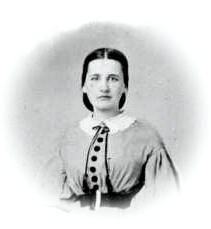July 4th, 1859 .—This is Father’s day to give the annual barbecue to all the Bradford black folks—all come from Live Oak Plantation, too. They number several hundred all told and vast preparation has to be made. We do not go to the barbecue for Father says we would spoil their pleasure. No white folks must go, they must feel free to enjoy themselves in their own way, but early this morning Father took me to see the pits, which were ready for the meat to be barbecued. It was a wonderful sight.
Ever so many deep pits had been dug and all night fires had been burning in these pits, ?res made of oak-wood (for pine would spoil the taste). Over these pits of glowing coals green hickory saplings had been placed and the cooks for the day were busily engaged in putting into the pits whole beeves, many of them; whole hogs, I dare not say how many. It takes a lot to feed so many strong, healthy appetites. Later in the day bread would be baked, potatoes roasted, coffee made; already jugs of milk and watermelons without number had been sunk in the cool depths of a nearby stream; for this is on Lake Iamonia on Horse-shoe Plantation. Every available boat had been collected from all points and ?shing tackle spoke of the sport to be enjoyed.
Next year Uncle Tom will have them all with him, the brothers take it turn about. When Uncle Henry died his wife withdrew from this arrangement and Uncle Henry’s negroes were so distressed and disappointed, but the other brothers. said “Let them come on, we will bear the expense,” and so it has been ever since.
This crowd of faithful, cheerful servitors enjoy their holiday to the full and talk about it for weeks. Men, women and children go, even the house-servants are excused if they wish to be.
Susan Bradford is 13 years old when this entry was made. While she is young, she has received an education beyond her years from a succession of tutors and hired teachers. At this point, though, her perceptions are those of a privileged daughter of a cotton planter in antebellum Florida, views she largely retained for the rest of her life.
Diary entries from before 1860 are included when the content is relevant to the issues that led to or framed the American Civil War. — MpG 5/22/2020
